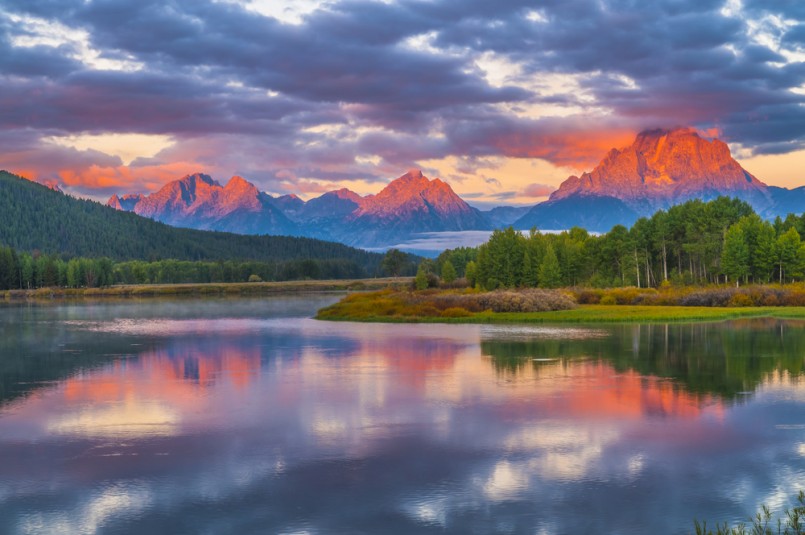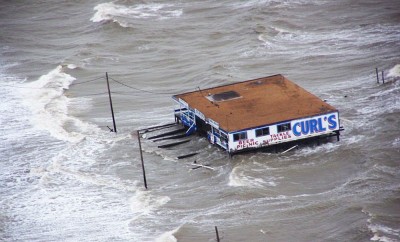Outdoors
Our national parks are too loud

Image: Shutterstock/Kris Wiktor
When you visit a national park, what do you expect to find? Breathtaking views? A sunrise or sunset behind a mountain, a lake, a vast field? Wildlife in its natural habitat? Perhaps a babbling brook, a singing bird, or a chirping cricket? Here’s what you probably don’t expect: loud music, maintenance machinery, campground generations, cars, even airplanes. Our national parks are too loud.
The problem is we are living in the most technologically advanced generation, which means our national parks are too loud. There has never been more machines, more development, more noise than there is right now. In fact, that could be a reason why people choose to visit a national park: to get away from all the noise. How frustrating would it be to get there and realize it’s just as loud at the park as it was back home in the city?
A study was released by the Acoustical Society of America that points out shuttle buses, a plan designed to cut back on the excess noise of too many cars, have only increased the noise in the Rocky Mountain National Park.
“A study in Rocky Mountain National Park in Colorado, for example, revealed the aural consequences of reducing traffic congestion on park roads by adding shuttle buses to carry people to and from trailheads. The new shuttles succeeded in making trails accessible to a greater number of visitors. But each bus was also six times louder than a car; and the sounds of chatting hikers, backpack zippers, and gravel-crunching boots became concentrated at bus arrival times instead of being spread more evenly throughout the day. This good decision therefore had a negative effect on soundscape, shrinking the visitors’ “listening area,” or the distance around their heads at which they can still hear natural sounds” (NationalParksTraveler.com).
Not only is it disruptive to those visiting and trying to enjoy the parks, but it also affects the wildlife living in these areas. “[Animals] want to know, ‘Where’s Bambi?’” Professor Newman explains in a release sent out by the Acoustical Society. “‘How far away do I have to be where [my young] can still hear me … or where I can hear that vole crawling beneath the surface of the leaves’” (NationalParksTraveler.com)? Les Blomberg, an acoustician at the Noise Pollution Clearinghouse, explains that noise pollution can interrupt animals’ ecosystems and threaten their lives. “It interrupts frogs singing in sync,” Blomberg says. “When they sing out of sync, they’re pretty much saying ‘eat me, eat me, here I am’” (LiveScience.com).
If this level of noise bothers you as well, here’s a list of ways you can cut back on sounds during your next visit to a national park.
- Think of noise as audible trash. “We don’t see noise because we’re such a visually-oriented society,” Blomberg said. “Because we try to ignore it, we can’t hear how much trash we’re throwing into the environment.”
- Quiet campgrounds. Odds are, if you have a choice between a quiet campground and a loud one, you’ll choose quiet and peaceful. Be respectful of your fellow campers the next time you are with a large group of people. If someone else is disrupting the peace (especially after quiet hours), don’t be afraid to go speak to a park ranger about it.
- Muffle motorcycles. If riding your bike through a national park, its noise should be no higher than eighty decibels. Don’t be one of those people who get a louder muffler just to be obnoxious and call attention to yourself. Respect the park and those around you who are trying to escape the noise.
- Carpool. Perhaps the shuttle buses aren’t working out so great (depending on the park), but carpooling is an option, too. If you and your friends, coworkers or another family want to spend the day at a park, great! Maybe meet up beforehand and drive together in one vehicle. This both cuts down on the noise and helps the environment of the park you’re visiting.
- Quiet children. It’s common for a parent to teach a child to “use your inside voice” when they want the child to quiet down. In turn, children learn that outside is the place to yell and scream. While that’s true in most cases, children should also be taught to respect the natural beauty and sounds of national parks. Perhaps encourage the kids to stay quiet with the incentive that they might see a wild bear, or moose, or deer, when otherwise they wouldn’t, because they’d scare off the animals.
Our national parks are too loud. Share with us in the comments what you do to prevent this issue from worsening.





0 comments